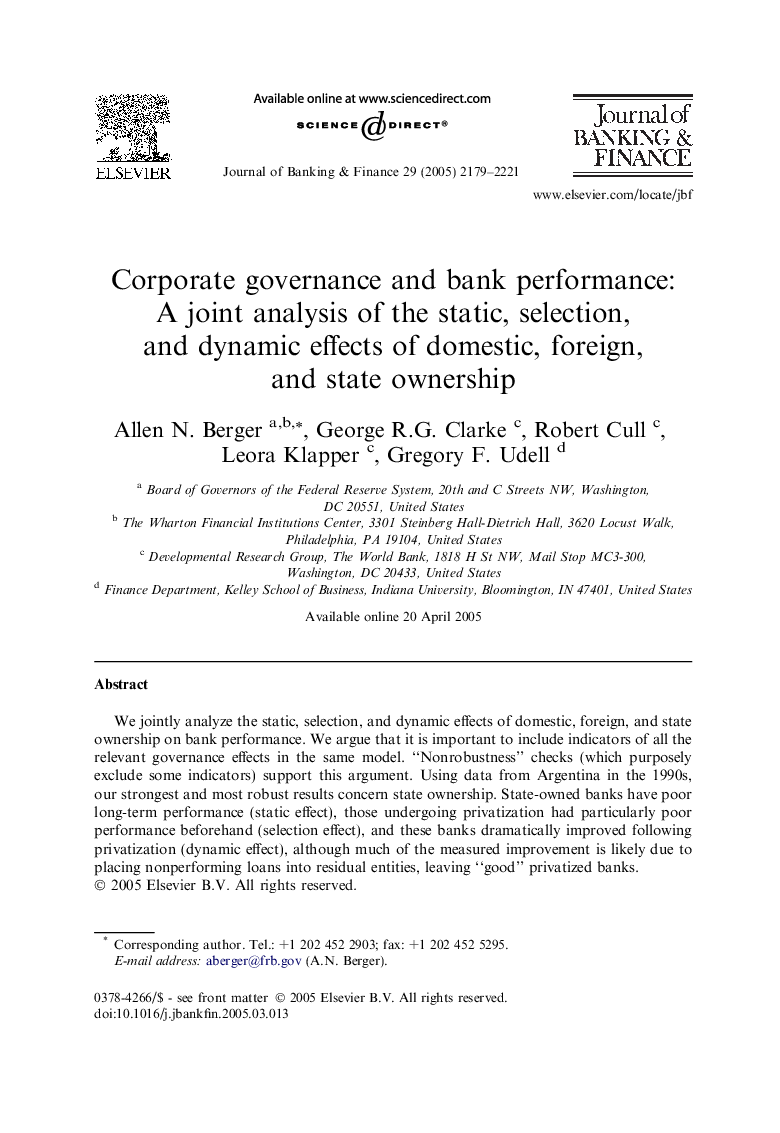| Article ID | Journal | Published Year | Pages | File Type |
|---|---|---|---|---|
| 5091508 | Journal of Banking & Finance | 2005 | 43 Pages |
Abstract
We jointly analyze the static, selection, and dynamic effects of domestic, foreign, and state ownership on bank performance. We argue that it is important to include indicators of all the relevant governance effects in the same model. “Nonrobustness” checks (which purposely exclude some indicators) support this argument. Using data from Argentina in the 1990s, our strongest and most robust results concern state ownership. State-owned banks have poor long-term performance (static effect), those undergoing privatization had particularly poor performance beforehand (selection effect), and these banks dramatically improved following privatization (dynamic effect), although much of the measured improvement is likely due to placing nonperforming loans into residual entities, leaving “good” privatized banks.
Related Topics
Social Sciences and Humanities
Economics, Econometrics and Finance
Economics and Econometrics
Authors
Allen N. Berger, George R.G. Clarke, Robert Cull, Leora Klapper, Gregory F. Udell,
